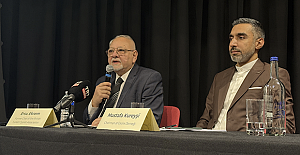Purpose of this article is to understand the underlying factors behind the recent update on the historic Law on Islam of Austria. The article asks to what extent, measures taken by the Austrian government for the accommodation of Muslims really address their problems and priorities. It argues that the new law, although having some relevancy, has serious flaws and implications for difference and religious diversity. The law is also an outcome of Islamophobia.
On February 25, the Austrian Parliament passed a bill that replaced the Law on Islam (Islamgesetz) introduced by Emperor Franz Joseph in 1912. The amendments provide some extended liberties for Muslims. For instance, Muslims will be able to consult Imams in state and public institutions such as the army, hospitals, and prisons. Their religious diet is legally protected by the state. The law also allows Muslims to omit work on their religious holidays. In exchange of the extended liberties, the law also brings security-driven regulations pertaining to the Muslim communities. It bans foreign funding of Islamic institutions in Austria. From this point in time, Imams require training in Austrian higher education institutions and the Quran will be standardised in German. Although the use of the standardised German Quran is not required, the sermons at prayers are now to be in German instead of Arabic or Turkish. According to the Austrian authorities, the law aims not just to enhance Muslims’ religious liberties, but also to increase their allegiance and loyalty as good Austrian citizens. Apart from its justifications, however, the Austrian Parliament’s update on the law represents a significant shift from a state with indigenous Muslim minorities to a state with immigrant Muslim minorities. Yet this empirical change that results from demographic transformation is accompanied by a state-led suspicion directed specifically at Muslims whose diverse ethno-religious identities are seen as homogenous. Considering the preventive nature of the regulations, Islamic identity without state regulation is perceived to be intrinsically incompatible with Austrian and European values because it is conceived to be inassimilable. Although the recent law cannot be exclusively seen as a multicultural backlash, it amounts to erosion of a significant historic legacy, which recognises equal rights and liberties for all faiths. The law may even well be counter-productive for the accommodation of Muslim minorities in Austria where Muslims are the primary immigrant faith group.
Hakan Erdagöz, PhD Candidate, Department of Political Science, University of Utah
This publication as follows:
Erdagöz, H. (June, 2015), “Austria’s Law on Islam and Its Implications for Difference, Minority Accommodation, and Islamophobia”, Vol. IV, Issue 6, pp.67-80, Centre for Policy and Research on Turkey (ResearchTurkey), London, Research Turkey. (http://researchturkey.org/?p=9093)


 After Nesil Caliskan a by-election will be held in Jubilee ward in Enfield
After Nesil Caliskan a by-election will be held in Jubilee ward in Enfield Publishing the analysis, Labour’s Cllr Ergin Erbil said Everybody in Enfield deserves basic rights
Publishing the analysis, Labour’s Cllr Ergin Erbil said Everybody in Enfield deserves basic rights Gaza-Israel conflict Statement from Cllr Ergin Erbil, Leader of Enfield Council
Gaza-Israel conflict Statement from Cllr Ergin Erbil, Leader of Enfield Council Cllr Ergin Erbil was elected as the new Leader of Enfield Council
Cllr Ergin Erbil was elected as the new Leader of Enfield Council History of the Turkish Cypriot People symposium held in London
History of the Turkish Cypriot People symposium held in London Asia's most famous and powerful 100 women award given to WFPA President Naziya Bisenova
Asia's most famous and powerful 100 women award given to WFPA President Naziya Bisenova Death toll climbs to 5 as powerful Storm Bert batters Britain
Death toll climbs to 5 as powerful Storm Bert batters Britain Turkish students are unable to obtain visas from the Italian Consulates
Turkish students are unable to obtain visas from the Italian Consulates Footballers are celebrating after Enfield Council officially opened a pitch
Footballers are celebrating after Enfield Council officially opened a pitch  Pep Guardiola's Manchester City beaten by Juventus
Pep Guardiola's Manchester City beaten by Juventus Chelsea to meet Arsenal in Sunday's London derby
Chelsea to meet Arsenal in Sunday's London derby Fenerbahce vs Manchester United Predicted line-ups! Jose Mourinho faces former side
Fenerbahce vs Manchester United Predicted line-ups! Jose Mourinho faces former side Shape the future of housing services with The Enfield 500
Shape the future of housing services with The Enfield 500 DOUBLE-CAB PICKUPS TO BE CLASSED AS CARS UNDER NEW HMRC POLICY
DOUBLE-CAB PICKUPS TO BE CLASSED AS CARS UNDER NEW HMRC POLICY Guide to Selling Hoodies with Imprinted Book Quotes
Guide to Selling Hoodies with Imprinted Book Quotes Google Street View launches at London’s busiest stations, making journeys easier
Google Street View launches at London’s busiest stations, making journeys easier

















